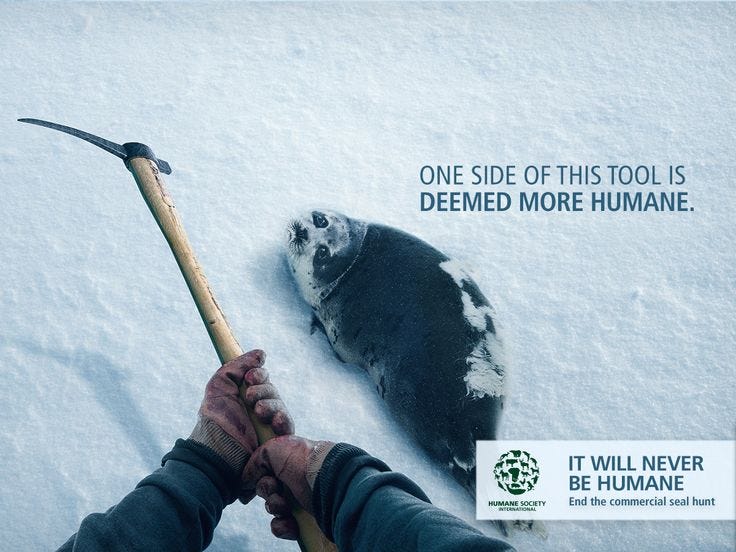I was listening to an interview the other day with entrepreneur Balaji Srinivasan, in which he argued that there are two ways by which you can raise capital: one is through investment, the other is through charity.
If you are raising capital through investment, the incentive is to demonstrate strength, competence, ability, prowess, honesty and many such other qualities. The more competence you demonstrate, the more likely people will invest in you and the more they will invest. Broadly speaking, this applies to gaining employment too.
On the other hand, if you are looking to appeal to people’s charity, then the opposite applies. You must demonstrate that you need and deserve this charity, and so the incentive is to demonstrate weakness, affliction, victimhood and so on.
Many of these messages of affliction have made for some of the most powerful ad campaigns ever conducted. Young children and animals are probably the most evocative - from the starving Ethiopian children that inspired Live Aid to the battered seals of anti-fur campaigns.
Welfare and, to an extent, healthcare can be seen as forms of charity, even education in a way. In the 19th century responsibility for the provision of welfare, healthcare and education mostly lay with the church, the friendly societies and other private bodies, but in the 20th they, for the most part, became the domain of the state.
Today there are countless institutions that rely on government subsidy for their existence - from those fighting climate change or promoting green energy to those fighting perceived inequalities such as Stonewall to many in the arts. All rely on demonstrating affliction to fund themselves and exist.
Meanwhile, charity has become an enormous business in the developed world, and all sorts of scandals are starting to emerge of corruption, of the huge salaries many of those who work in it enjoy (get paid lots and be virtuous) and the fact that so little of money donated actually reaches the intended recipients - less than 50% is the key stat from the David Craig book, The Great Charity Scandal: What Really Happens to the Billions We Give to Good Causes? Some charities rely on donations and subscriptions, many rely on the state and its subsidies, many on both. And the industry is heavily regulated by state (with questionable results if the above is to be believed). Regulation also costs a lot of money to adhere to.
As those who read my stuff, especially Life After the State, will know, I constantly argue the state is not the best means to provide these things to the highest possible standard at the lowest possible cost, that in fact, for all its good intentions (let’s assume they’re good) the state often causes more harm than good and its role in exacerbating the health, wealth and opportunity gaps is demonstrable and large. Thus we should shrink the state as much as is possible.
But because the state has grown so bloated in the West, and because it is the main provider of this second form of capital - charity - whether by subsidy or through its other systems, and because the solution to pretty much any social problem that arises is that the government “must do something”, I suggest we are getting caught up in an extremely unhealthy psychological loop. Rather than incentivising strength, competence, excellence and so on, our systems are incentivising behaviours by which that second form of capital be raised - weakness, victimhood and so on. That’s why there is so much of it about.
New afflictions are being found all the time, as “entrepreneurial” spirits try and find new means to secure special favour, protection and subsidy.
Thus, by shrinking the state do we shrink victimhood.
We want people to be the best they can be, surely? Not the opposite.











